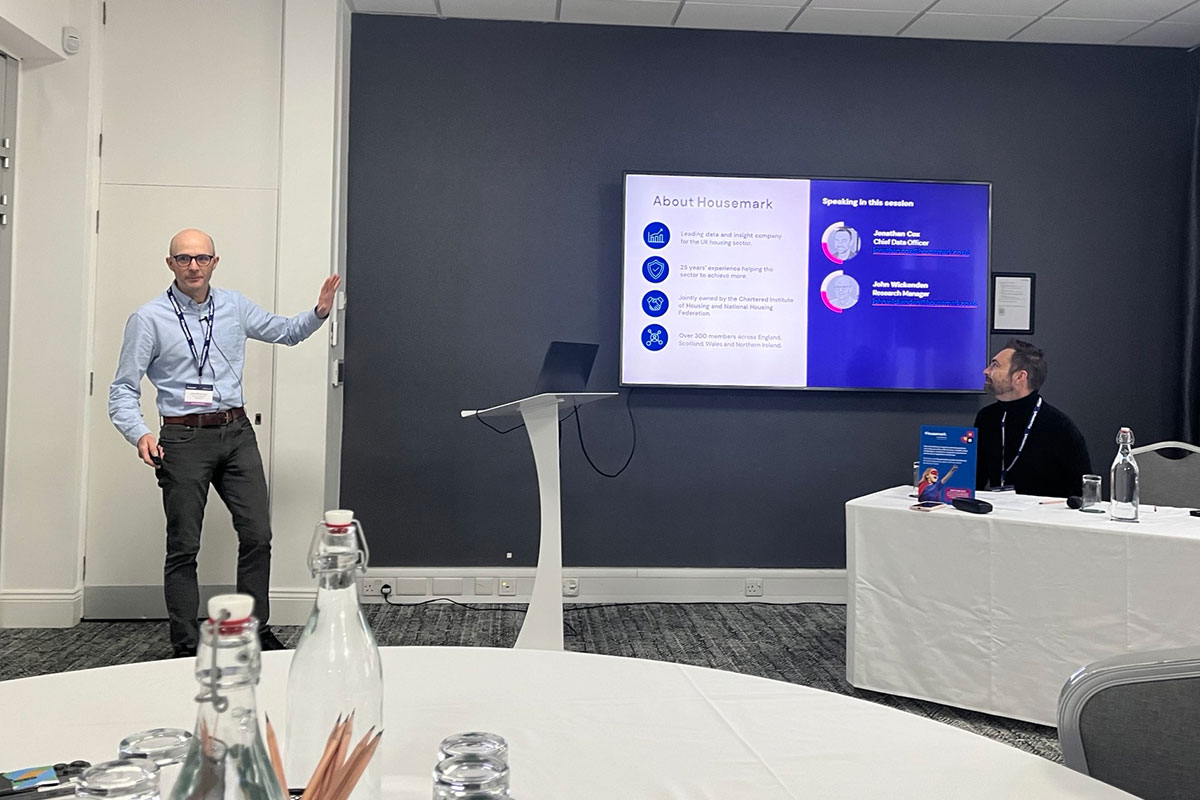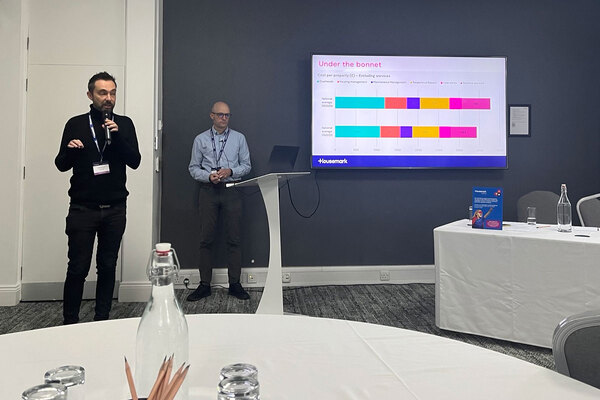You are viewing 1 of your 1 free articles
Landlords will ‘not fool’ the regulator by changing TSM survey methods, data summit told
Landlords “will not fool” the Regulator of Social Housing (RSH) if they change their collection methods for the tenant satisfaction measures to “artificially” improve scores.
Speaking at Housemark’s Housing Data and Analytics Summit 2024, Jonathan Cox, chief data officer at the firm, said that the English regulator is “on it” when it comes to how survey methods can impact scores.
The comments were in response to a delegate question on whether Housemark’s forecast on overall satisfaction in the tenant satisfaction measures (TSMs) has to take into account how landlords “might change their collection methods” to “artificially improve” scores.
Housemark is predicting that satisfaction scores will dip again in 2024-25 as it takes about 18 months for service improvements to be reflected in perception surveys.
John Wickenden, research manager at Housemark, said the TSM data return to the regulator contains a “hell of a lot” of contextual data.
“So you’ve got to weigh up that risk of saying ‘we want that quick win, we’re going to do it all face-to-face, we’re going to get the higher percentage scores for satisfaction come through.
“But then you’ve got the risk to your reputation that will come as a result of that not matching your inspection score,” he said.
Mr Cox clarified that the firm’s analysis does adjust for collection method, “so the decline in perception is real no matter what collection method is used”.
“The second point is that the English regulator speaks to me regularly about understanding the impact of collection methods… so you’re not going to fool the [RSH] by changing collection method.”
Inside Housing’s analysis found that one in five landlords had changed their collection methods during the first year, with 17 adding or increasing their use of phone surveys.
Mr Cox told the summit that more landlords are using face-to-face surveys.
“In reality, we are seeing a shift away from online, because the scores are quite challenging, and we are seeing a tentative shift towards face-to-face.
“It was typically a very minority way to do these surveys because it’s so expensive, but it’s becoming more common,” he said.
He said that “all collection methods have their advantages” but that they should “never” drive decision-making.
“This is about understanding feedback and putting in place strategy and tactics to improve the tenant experience,” Mr Cox added.
Inside Housing recently reported that Newham Council received the highest TSM score for overall repair service in London, despite receiving a C4 consumer grade from the regulator.
It surveyed residents solely face-to-face, a method known to get higher satisfaction scores.
The regulator was asked about the case and the “disconnect” between the grades during a separate session on regulation.
Jonathan Driscoll, assistant director of regulatory engagement at the RSH, said the TSMs are “only one source of evidence”.
He said the C4 judgement was a “holistic view across all the information we received”.
Mr Driscoll added that there are different collection methods available to landlords for the perception surveys. “Because of that, there is evidence about those different methodologies potentially having different results.”
Sign up for our Council Focus newsletter
Already have an account? Click here to manage your newsletters












